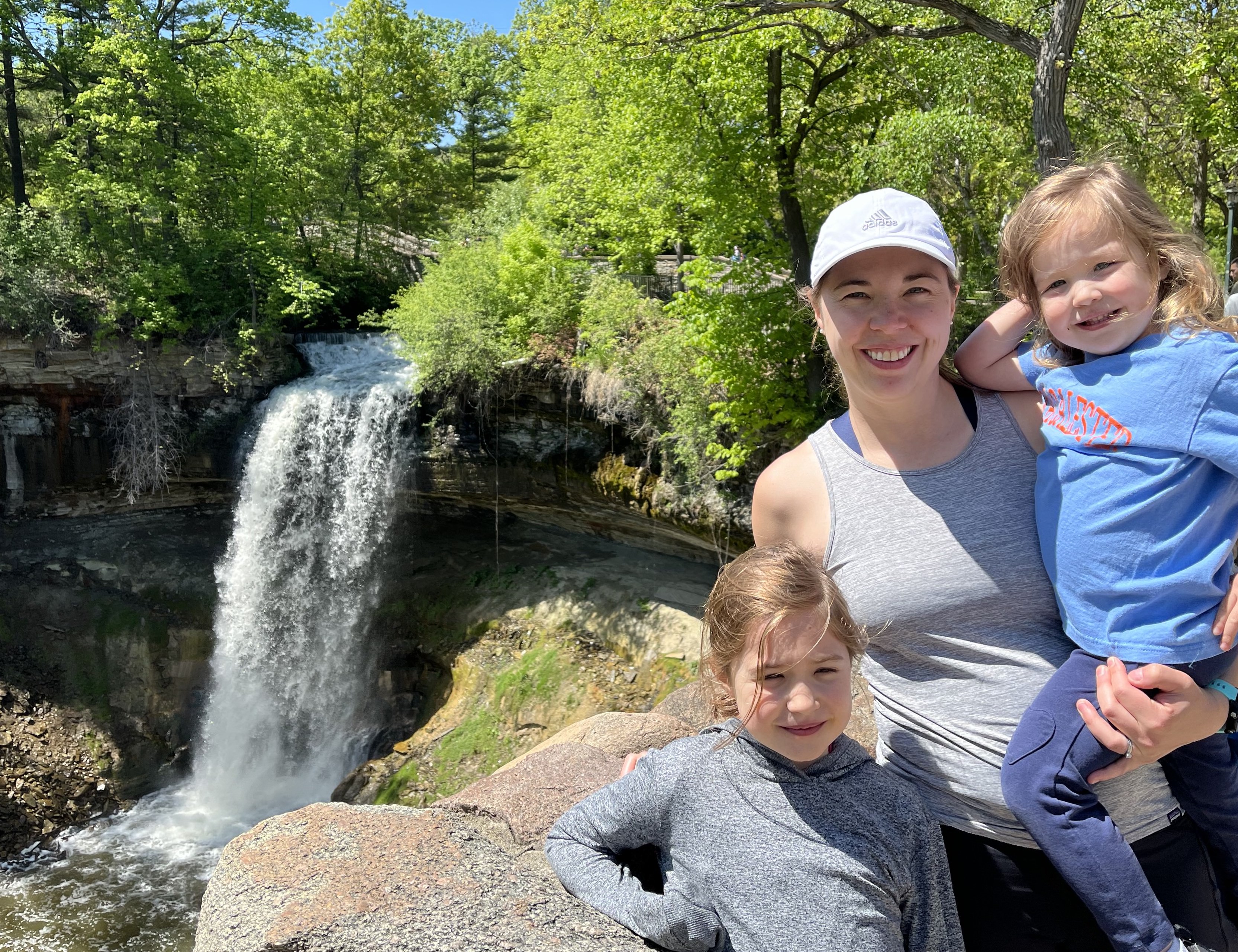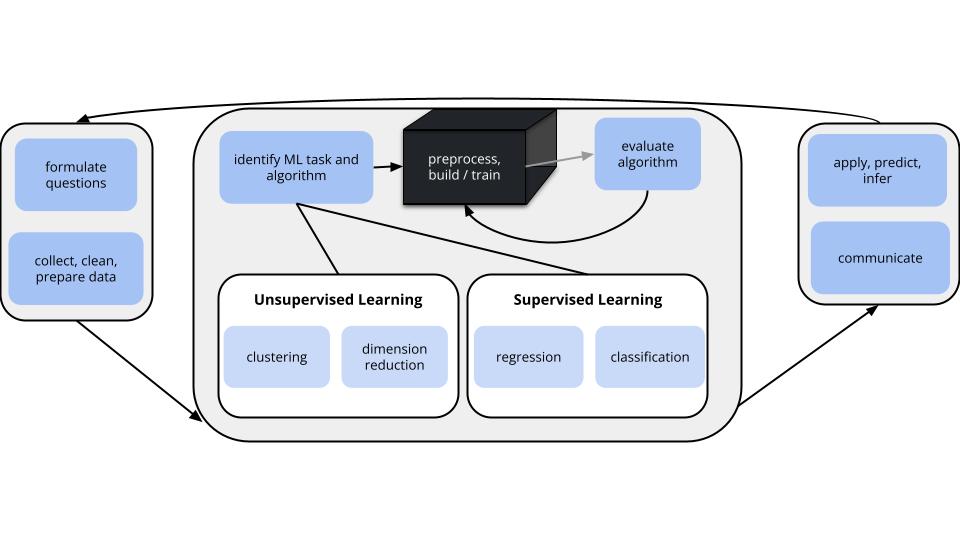Introductions
Introductions
As we gather, if you haven’t filled out the information gathering survey, do so now.
- Link is in your email and on Moodle.
Small Group Discussion
Go to https://bcheggeseth.github.io/253_spring_2024/introductions.html
Go to > Small Group Discussion: Envisioning a Community of Learners.
Need one volunteer per group to take notes in common Google Doc.
Who am I
Prof. Brianna Heggeseth
[bree-AH-na] [HEG-eh-seth]

Who am I
Where I’ve Been
Who am I
What I do
Course Details
- Learning Goals
- Community of Learners
- Course Components
- Communication
- Environment You Deserve
Learning Goals
In STAT 253 we will…
- Pick up where STAT 155 left off, acquiring tools that can be used to learn from data in greater depth and a wider variety of settings. STAT 155 is a foundational subset of ML!
- Explore universal ML concepts using tools and software common among statisticians (hence “statistical” machine learning).
- Survey a breadth of modern ML tools and algorithms that fall into the workflow below. We’ll focus on concepts and applications over mathematical theory. Part of the cognitive load will be:
- keeping all the tools in place (what are they and when to use them)
- understanding the connections between the tools
- adapting (not memorizing) code to implement each tool

Learning Goals: SUPERVISED LEARNING
We want to model the relationship between some output variable \(y\) and input variables \(x = (x_1, x_2,..., x_p)\):
\[\begin{split} y & = f(x) + \varepsilon \\ & = \text{(trend in the relationship) } + \text{ (residual deviation from the trend `epsilon`)} \\ \end{split}\]
Types of supervised learning tasks:
regression: \(y\) is quantitative
example:
\(y\) = number of minutes to destination
\(x\) = (distance, speed limit, traffic, etc)classification: \(y\) is categorical
example:
\(y\) = whether it rains tomorrow (yes/no)
\(x\) = (temperature, whether it rained today, month, location, etc)
Learning Goals: UNSUPERVISED LEARNING
We have some input variables \(x = (x_1, x_2,..., x_p)\) but there’s no output variable \(y\). Thus the goal is to use \(x\) to understand and/or modify the structure of our data with respect to \(x\).
Types of unsupervised learning tasks:
clustering
Identify and examine groups or clusters of data points that are similar with respect to their \(x_i\) values.dimension reduction
Turn the original set of \(p\) input variables, which are potentially correlated, into a smaller set of \(k < p\) variables which still preserve the majority of information in the originals.
Learning Goals: Evaluating Models
Is it fair?
Let’s watch a 5 minute clip of Coded Bias
More in the videos for Tuesday…
Community of Learners
Learn by doing.
- Learning by doing entails getting stuck, making mistakes, asking questions, and getting feedback.
Collaboration.
- Working effectively in a group setting is an essential life skill that requires practice and demonstrably improves your learning
Community building.
- People learn best in community when they feel safe, seen, and cared about.
Course Components
Checkpoints (Introduction)
- Watch videos / complete readings prior to class time
- Complete Moodle “quiz” to ensure basic understanding
- To pass the course, you must attempt 10 checkpoints, at a minimum, with at least 7 of them checkpoints with above 80%.
Activities (Exploration)
- In class activities (notes + exercises)
- Opportunity to explore concepts in community
Homework Assignments (Deepen, Practice)
- Opportunity to deepen your conceptual understanding and practice implementation of algorithms
Course Components
Concept Quizzes (Demonstration)
- Three in-class assessments of conceptual understanding of methods and algorithms
Group Assignments (Application, Communication)
- Three group assignments (like homework but done in group)
- Opportunity to collaborate, apply the conceptual knowledge to a real data set, and practice communication
Communication
Slack Channels: class-wide messaging platform for course-related questions
- General channel: class-wide announcements
- Content-specific class-wide channels: rcode-questions, content-questions, lift-up, etc.
Email or DM in Slack: for anything personal in nature (e.g. illness, feeling overwhelmed, feedback, etc.)
Environment You Deserve
Macalester College values diversity and inclusion.
I am committed to a climate of mutual respect, free of discrimination based on race, ethnicity, gender identity, religion, sexual orientation, disability, and other identities, in and out of the classroom. This class strives to be a learning environment that is usable, equitable, inclusive, and welcoming.
To help support these goals, I expect you to follow the MSCS Community Guidelines.
These guidelines were created by the MSCS faculty and staff in our ongoing efforts to create a community that is more welcoming, supportive, and inclusive.
Environment You Deserve
Respect: regard the feelings, wishes, experiences, and traditions of others as individuals
Empathy: try to sense and understand others’ emotions and feelings
Start with Curiosity: don’t assume; instead, ask a question
Supportive Community: you are not learning in isolation but rather, in a community ready to help and assist each other
In-class Activity
Go to https://bcheggeseth.github.io/253_spring_2024/introductions.html
Go to > In-Class Activity - Exercises.
I’m going to put you in groups with different people.
First task: introduce yourself and then figure out why you were put together as a group (based on the data you provided)
Second task: Work on the exercises in community
- Talk through your ideas and questions and your reasoning.
- I will move around to groups and ask you to tell me why you think you were put together as a group.
After Class
- Complete Checkpoint 1 before next class (on Moodle)
- Watch video first
- Reading in ISLR is highly recommended
- Work on Homework 1 (on Moodle)
